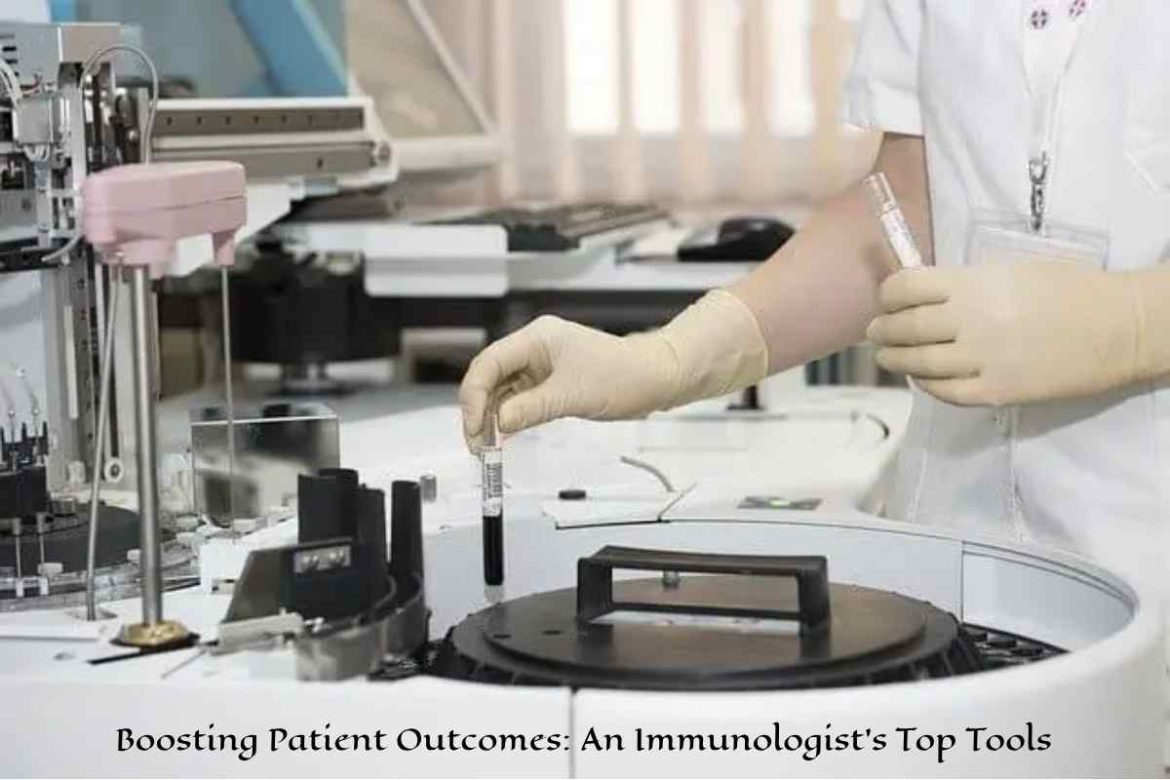Boosting Patient Outcomes: An Immunologist’s Top Tools – As an immunologist, I prioritize ensuring my patients receive the best care possible. To that end, I have developed a few tools that help me ensure their outcomes are successful. In this blog post, I will share my top tips and tools that have helped me successfully manage my patients’ health and improve their overall outcomes. From the latest advancements in medical technology to simple yet effective lifestyle changes, these tips will help any immunologist to boost patient outcomes and provide better care. Immunologists can stay one step ahead in providing excellent patient care with these tools and information.
Diagnostic Tools and Techniques for Identifying Immunological Disorders
In the field of immunology, accurate diagnosis is crucial for effective treatment. With the advancement of technology, immunologists now have access to a wide range of diagnostic tools and techniques. From blood tests that measure specific antibodies to advanced imaging techniques that visualize the immune system in action, these tools allow us to identify and
understand immunological disorders more accurately. Flow cytometry and genetic testing also enable us to analyze immune cells and genes, providing valuable insights into the underlying causes of immunological diseases. Immunologists can make informed decisions and tailor treatments to each patient’s unique needs using these diagnostic tools.
Treatment Options: From Traditional Medicines to Emerging Therapies
Treatment options for immunological disorders have come a long way in recent years. While traditional medicines have been the go-to for managing these conditions, emerging therapies are revolutionizing patient care. Traditional medicines such as corticosteroids and immunosuppressants are vital in managing symptoms and reducing inflammation. However,
emerging therapies offer exciting new possibilities.
One such emerging therapy is targeted biologic medications. These medications specifically target the immune system components causing the disorder, leading to more effective treatment and fewer side effects. Monoclonal antibodies, for example, have shown great promise in treating conditions like rheumatoid arthritis and psoriasis by neutralizing specific immune system molecules.
Gene therapies are another innovative approach being explored in immunology. By targeting and modifying specific genes involved in the immune response, researchers aim to correct underlying genetic abnormalities and improve treatment outcomes. This approach has the potential to revolutionize the treatment of inherited immunological disorders.
Furthermore, immunotherapy is gaining traction as a treatment option. By harnessing the immune system’s power, immunotherapy aims to enhance the body’s natural ability to fight off diseases. Techniques such as immune checkpoint inhibitors and CAR-T cell therapy have shown remarkable success in treating certain cancers by boosting the immune system’s response to tumor cells.
While traditional medicines are essential to managing immunological disorders, emerging therapies offer new hope and possibilities for patients. As immunologists, we must stay up-to-date with the latest research and advancements in treatment options, as they can significantly improve patient outcomes and quality of life.
Patient Education and Empowerment for Improved Outcomes
One of the most crucial aspects of managing immunological disorders is patient education and empowerment. As immunologists, we are responsible for ensuring that our patients understand their condition, treatment options, and the importance of self-care. Educating and empowering our patients can significantly improve their outcomes and quality of life.
First and foremost, patient education involves providing clear and comprehensive information about the specific immunological disorder. This includes explaining the underlying causes, symptoms to watch out for, and potential complications. Educating patients about their condition enables them to actively participate in their care and make informed decisions.
In addition to educating patients about their condition, we must empower them to take charge of their health. This can be achieved through various means, such as providing resources and tools to monitor their symptoms, offering guidance on lifestyle changes that can improve their overall well-being, and encouraging them to be proactive in their treatment.
Furthermore, technology can play a significant role in patient education and empowerment. Allergy patient retention software, for example, can provide patients with personalized care plans, track their progress, and provide reminders for medications and appointments. By utilizing such software, we can ensure that our patients have the necessary tools to manage their condition effectively.
Overall, patient education and empowerment are essential for improved outcomes in immunology. By providing the necessary information, resources, and support, we can help our patients actively participate in their treatment and achieve better health.
The Importance of Interdisciplinary Care in Immunology
Collaboration and interdisciplinary care are crucial in the field of immunology. Immunological disorders often require a multidisciplinary approach involving various specialists working together to provide the best possible care for patients. By collaborating with other healthcare professionals, such as rheumatologists, allergists, and geneticists, immunologists can gain valuable insights and expertise that contribute to improved patient outcomes. Interdisciplinary care allows for comprehensive evaluation, personalized treatment plans, and better care coordination, ensuring patients receive holistic and effective care.
By working as a team, healthcare professionals can provide a more comprehensive approach to managing immunological disorders and ultimately improve patient outcomes.
Patient education and empowerment are crucial in improving outcomes, and interdisciplinary care allows for comprehensive evaluation and personalized treatment plans. By staying up-to-date with advancements in the field, immunologists can continue to enhance patient outcomes and provide excellent care.


